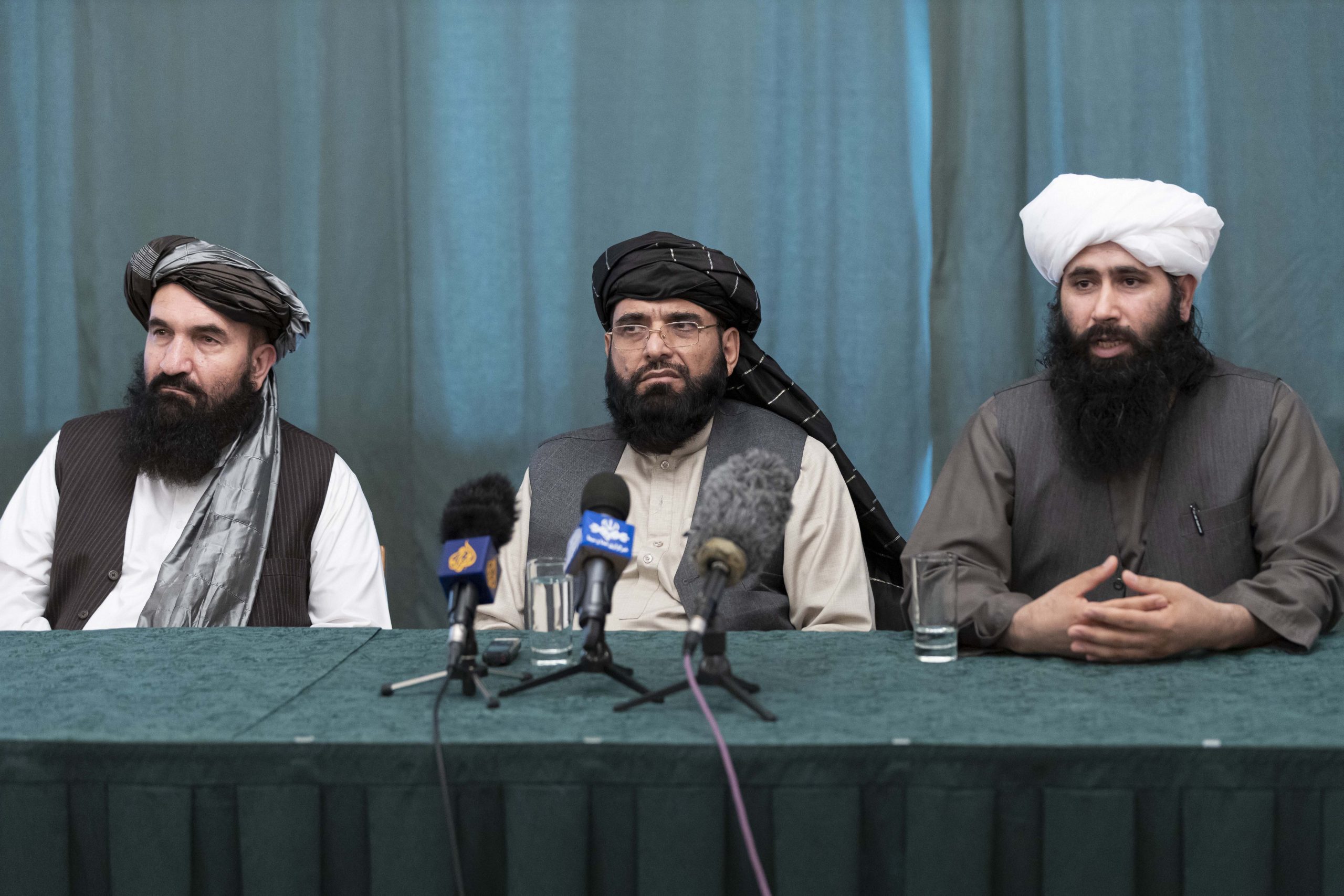The Taliban “strenously favours” a political settlement to the conflict in Afghanistan, the Islamist group’s supreme leader Hibatullah Akhundzada said on Sunday. This comes as the Taliban and the Afghan government held fresh rounds of talks in the Qatari capital of Doha over the weekend, renewing hopes of an end to the stalemate over the peace talks.
However, this also comes amid an increased offensive across the war-torn country by the Islamist group, which has made the most of the withdrawal of American and other foreign troops, AFP reported.
Also Read | What we know about the abduction of the daughter of Afghan envoy to Pakistan
The group is now believed to be in control of 400 districts and a number of important border crosssings while also laying seige to many important province capitals.
“In spite of the military gains and advances, the Islamic Emirate strenuously favours a political settlement in the country,” Akhundzada said.
“Every opportunity for the establishment of an Islamic system, peace and security that presents itself will be made use of by the Islamic Emirate. We fully assure neighbouring, regional and world countries that Afghanistan will not permit anyone to pose a security threat to any other country using our soil.”
The Taliban and the Afghan government have met several times in Doha in recent months, but have acheived little success in terms of the stalled peace talks. The negotiations have appeared to lose momentum as the Taliban made increasing gains on the battlefield.
Also Read | We are sorry: Taliban deny role in photojournalist Danish Siddiqi’s death
The Taliban leader said his group remained committed to forging a solution to end the war, but slammed “the opposition parties” for “wasting time”.
“Our message remains that instead of relying on foreigners, let us resolve our issues among ourselves and rescue our homeland from the prevailing crisis,” he added.
A spokesman for the Afghan security forces said that pro-government fighters had conducted 244 operations, killing 967 “enemy” fighters — including key commanders.
“We have recaptured 24 districts so far, our goal is to retake all the territories… We are ready to defend our country,” Ajmal Omar Shinwari told reporters.
Also Read | Taliban, Pakistani forces instructed to target India-built Afghan assets: Report
The Taliban have long appeared to be united, operating under an effective chain of command and carrying out complex military campaigns despite perennial rumours of splits among the organisation’s leadership.
Questions remain over how firm a hand the Taliban’s leaders have with commanders on the ground, and whether they will be able to convince them to abide by a potential agreement if signed.
The leader’s statement notably made no mention of a formal ceasefire call for the upcoming Eid holidays.
Over the years, the Taliban have announced a series of short truces during Islamic holidays that initially spurred hopes that a larger reduction of violence would be implemented in the country.
However the group has more recently been criticised for using the temporary ceasefires to resupply and replenish their fighters, allowing them to launch withering onslaughts on Afghanistan’s security forces once the truce expires.
Islamabad has touted a conference of regional leaders to address the spiralling violence after the Eid al-Adha holiday, due to start Monday, during which sheep and goats are traditionally killed.
“This year we will not be slaughtering (animals). It’s because the situation of our country is not good. The fighting is ongoing. We are concerned,” said Abdullah, a resident of Jalalabad in Afghanistan’s east.
Also Read | Will Afghans lose civil liberties again? 5 things Taliban banned in the 90s
“People are poor and most of them are worried about the increase in violence.”
The US-led military coalition has been on the ground in Afghanistan for nearly two decades following an invasion launched in the aftermath of the September 11, 2001 attacks.
Fears are growing that Afghan forces will be overwhelmed without the vital air support they provide, allowing for a complete Taliban military takeover or the start of a multi-sided civil war in a country awash with large stockpiles of weapons following nearly four decades of fighting.







